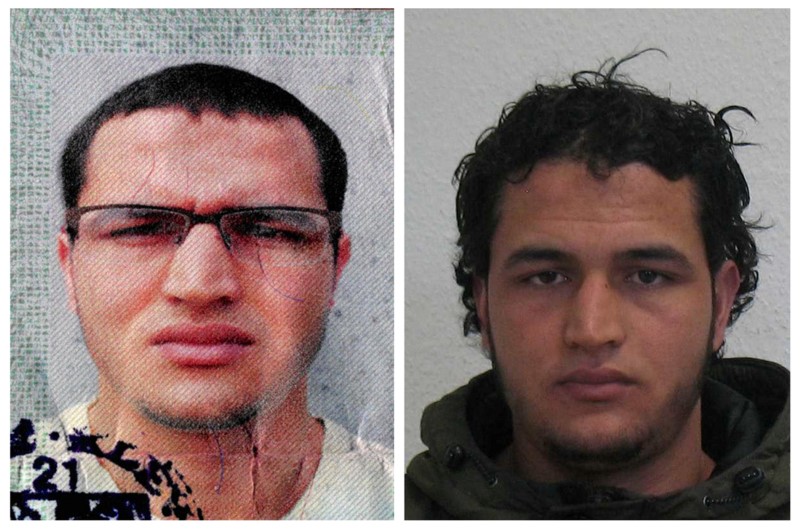By Michelle Martin and Michael Nienaber
BERLIN (Reuters) – Investigators found fingerprints of a Tunisian suspect in the Berlin Christmas market attack on the door of the truck that ploughed through the crowds, killing 12, German media said on Thursday, as a nationwide manhunt for the migrant was underway.
Islamic State has claimed responsibility for the attack in which a truck smashed through wooden huts selling gifts, mulled wine and sausages on Monday evening. It was the deadliest attack on German soil since 1980.
The media did not name their source for the report about 24-year-old Anis Amri’s fingerprints and police declined to comment.
The Berlin attack has raised concerns across Europe in the approach to Christmas, with markets in France, target of a series of militant attacks over the last year, tightening security with concrete barriers. Troops were also being posted at churches.
The Berlin market reopened on Thursday ringed by concrete bollards.
Police in the western German city of Dortmund arrested four people who had been in contact with Amri, media reports said, but a spokesman for the chief federal prosecutor denied that and said he would give no further details on the operation.
Bild newspaper cited an anti-terrorism investigator as saying it was clear in spring that Amri was looking for accomplices for an attack and was interested in weapons.
ASYLUM REQUEST REJECTED
The report said preliminary proceedings had been opened against Amri in March based on information he was planning a robbery to get money to buy automatic weapons and “possibly carry out an attack”.
In mid-2016, he spoke to two IS fighters and Tunisian authorities listened in on their conversation before informing German authorities. Amri also offered himself as a suicide attacker on known Islamist chat sites, Bild said.
Police started looking for Amri after finding an identity document under the driver’s seat of the truck used in the attack. Authorities have stressed he is just a suspect and not necessarily the driver of the truck.
Broadcaster rbb said the perpetrator lost both his wallet and mobile phone while running away from the attack site.
On Wednesday, Ralf Jaeger, interior minister of the western state of North Rhine-Westphalia (NRW), said the Tunisian appeared to have arrived in Germany in July 2015 and his asylum application had been rejected in June 2016.
Klaus Bouillon, head of the group of interior ministers from Germany’s federal states, said Islamists often left identity documents at attack sites – as was the case in Paris attacks – to steer public opinion against refugees.
German Chancellor Angela Merkel has faced calls to tighten asylum procedures since the attack. Armin Schuster of her Christian Democrats, told broadcaster NDR: “We need to send the signal: Only set off for Germany if you have a reason for asylum.”
The Italian Foreign Ministry said an Italian woman named Fabrizia Di Lorenzo was among the victims and the Israeli Foreign Ministry said an Israeli woman called Dalia Elyakim had been identified among the dead.
(Reporting by Michelle Martin, Michael Nienaber, Thorsten Severin, Victoria Bryan in Berlin and Jeffrey Heller in Jerusalem; additional reporting by Sabine Siebold in Mazar-i-Sharif,Afghanistan; editing by Ralph Boulton)
 Flowers are seen near the scene where a truck ploughed into a crowded Christmas market in the German capital last night in Berlin, Germany, December 20, 2016.. REUTERS/Fabrizio Bensch
Flowers are seen near the scene where a truck ploughed into a crowded Christmas market in the German capital last night in Berlin, Germany, December 20, 2016.. REUTERS/Fabrizio Bensch

